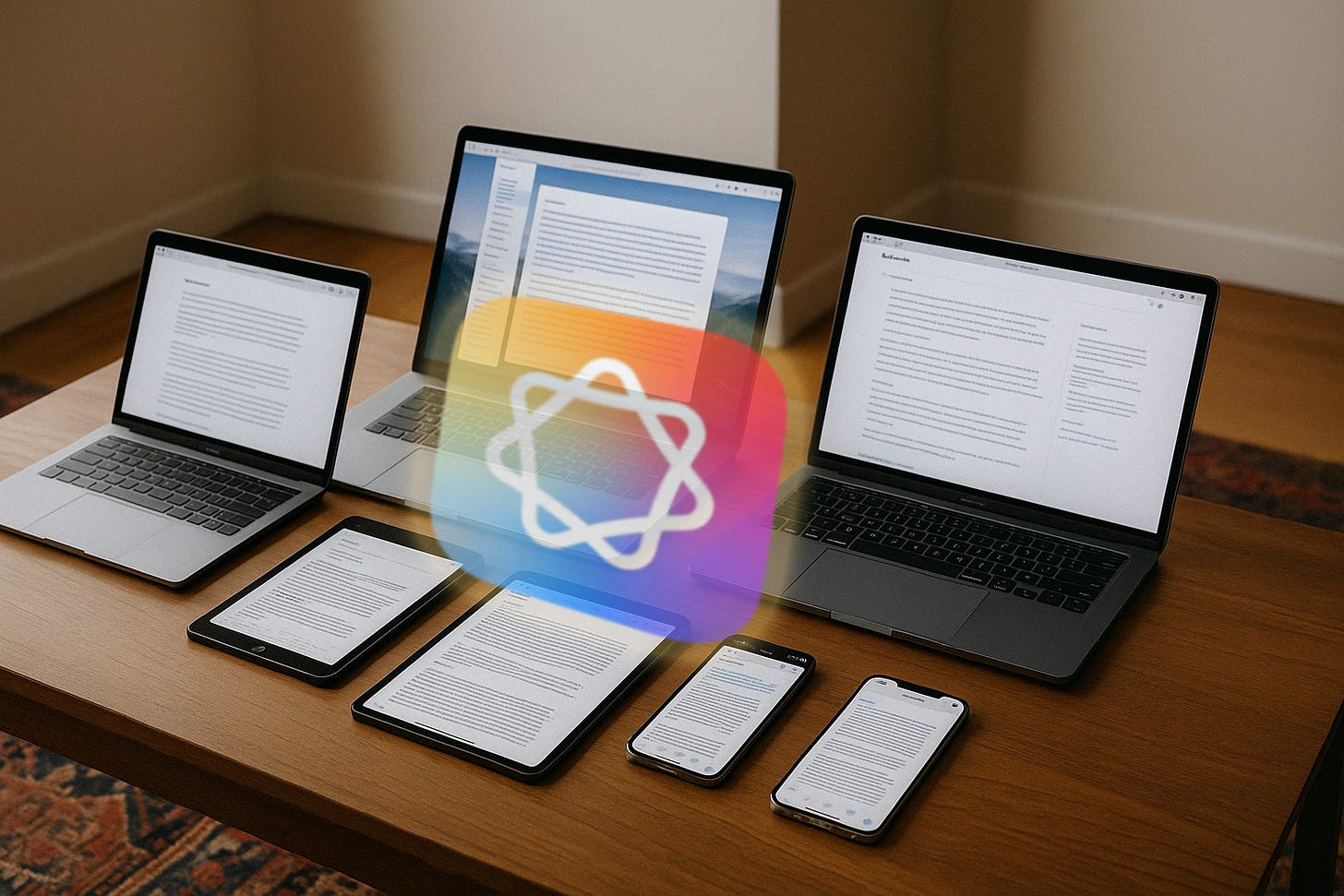Apple’s AI Plans: What They Mean for Your Privacy
Understand how your data could be used (and how to opt out).
If you own an Apple device, you’ve probably heard the buzz around Apple Intelligence — the company’s push to bring generative AI features like email summarization, writing suggestions, and smarter Siri to your iPhone, iPad, and Mac.
But here’s what privacy-conscious users can’t afford to ignore: Apple plans to analyze on-device user data as part of this AI rollout.
Let’s break down what that really means — and how to stay in control.
Apple’s AI Training Strategy: Synthetic Data Meets On-Device Privacy
Unlike Google or OpenAI, Apple is taking a more privacy-conscious route. Rather than mining your emails and messages, Apple generates synthetic data — fake but realistic messages like “Want to play tennis tomorrow?” — to simulate how real people write.
Here's how it works:
Apple creates a large batch of synthetic emails.
These are turned into embeddings — mathematical summaries of message content.
The embeddings are sent to opted-in devices only.
Your device compares these embeddings to a tiny, private sample of your recent emails (stored locally).
This helps refine Apple’s AI models without Apple ever seeing your emails.
Apple says this will only happen on devices where users have opted in to share analytics.
And yes, they deserve credit for that transparency.
Here’s How to Opt Out of Apple AI Features
If you’d rather not be part of Apple’s AI training — even with synthetic comparisons — you can opt out completely.
Turn off Apple Intelligence:
Settings → Siri & Search → Apple Intelligence → Toggle off
Stop sharing analytics:
Settings → Privacy & Security → Analytics & Improvements
→ Turn off Share iPhone & Watch Analytics
Doing both ensures your data stays local and out of Apple’s model-training pipeline.
Apple vs. Google AI: A Privacy Comparison
Apple:
On-device + cloud fallback AI
Uses synthetic data and anonymized, opt-in analytics
Opt-out fully available via Settings
Focus on privacy, local-first approach
Google (Android/Gemini):
Cloud-based AI deeply integrated in apps and search
Uses real user data from Gmail, Docs, Search, etc.
No universal opt-out from training
Cloud-first, data-heavy strategy with less transparency
So is Android a better alternative? Not really — especially for privacy-first users. Google’s AI push is powerful, but far more invasive, with fewer ways to opt out.
A Quick Reminder…
If you're curious what I use personally to stay private online — from browsers and email to file sharing and AI — I keep my favorite tools updated here:
It's a simple list I trust, built from years of testing privacy-focused apps.
Prefer Full Privacy? Check Out Proton
If you want to avoid both ecosystems’ AI creep, I recommend the Proton suite:
Proton Mail for encrypted, no-tracking email.
Proton Drive for secure file storage.
Proton Docs for private document collaboration (yes, now available!).
These tools are fully end-to-end encrypted — your content stays yours, always.
Final Thoughts
Apple’s approach is the most privacy-respecting AI rollout from any major tech company so far — but it still requires awareness and action.
If you're not comfortable with any data comparisons (even local ones), opt out of Apple Intelligence and disable analytics. And if you're looking for tools that make privacy the default, Proton and other alternatives are ready and waiting.
Stay smart. Stay skeptical. And always question the defaults.
Sources used in this article:
"Apple will use synthetic data to train AI models" — The Verge
"Not ready for AI? How to turn off Apple Intelligence" — CNET
"Google AI Overviews has no opt-out — and users are frustrated" — NPR
"Google’s Gemini in Android: No real way to opt out" — Axios
"Google AI Overviews: How to use and how to turn off" — Wired






